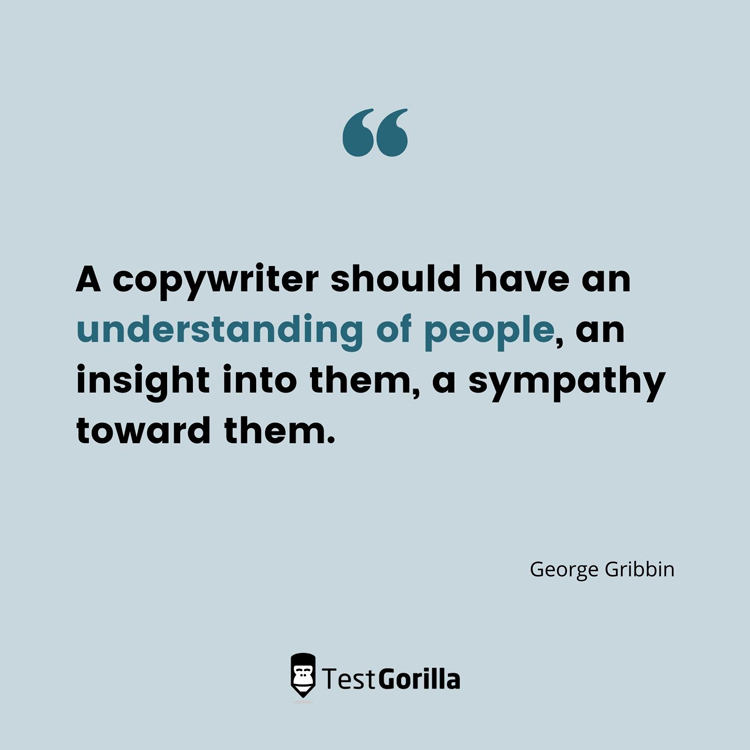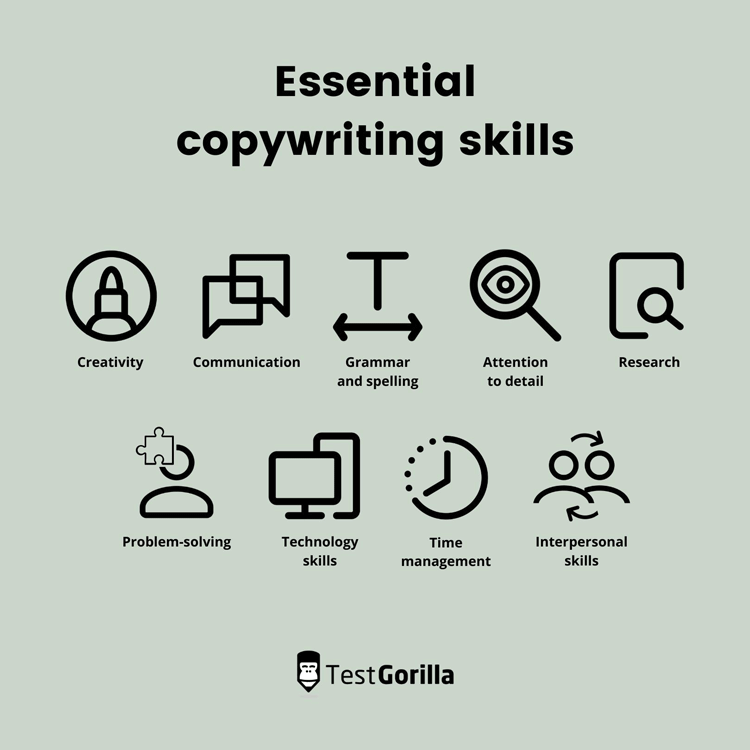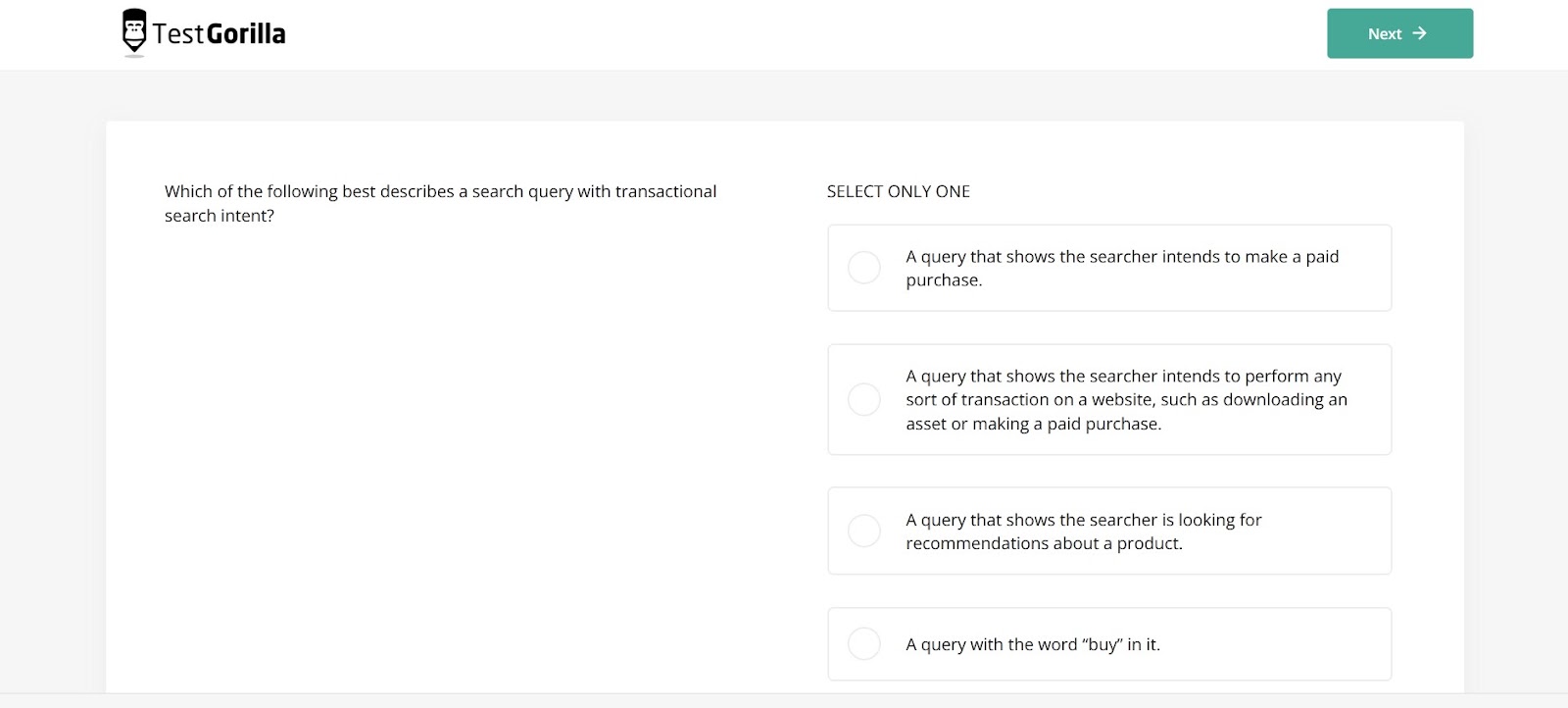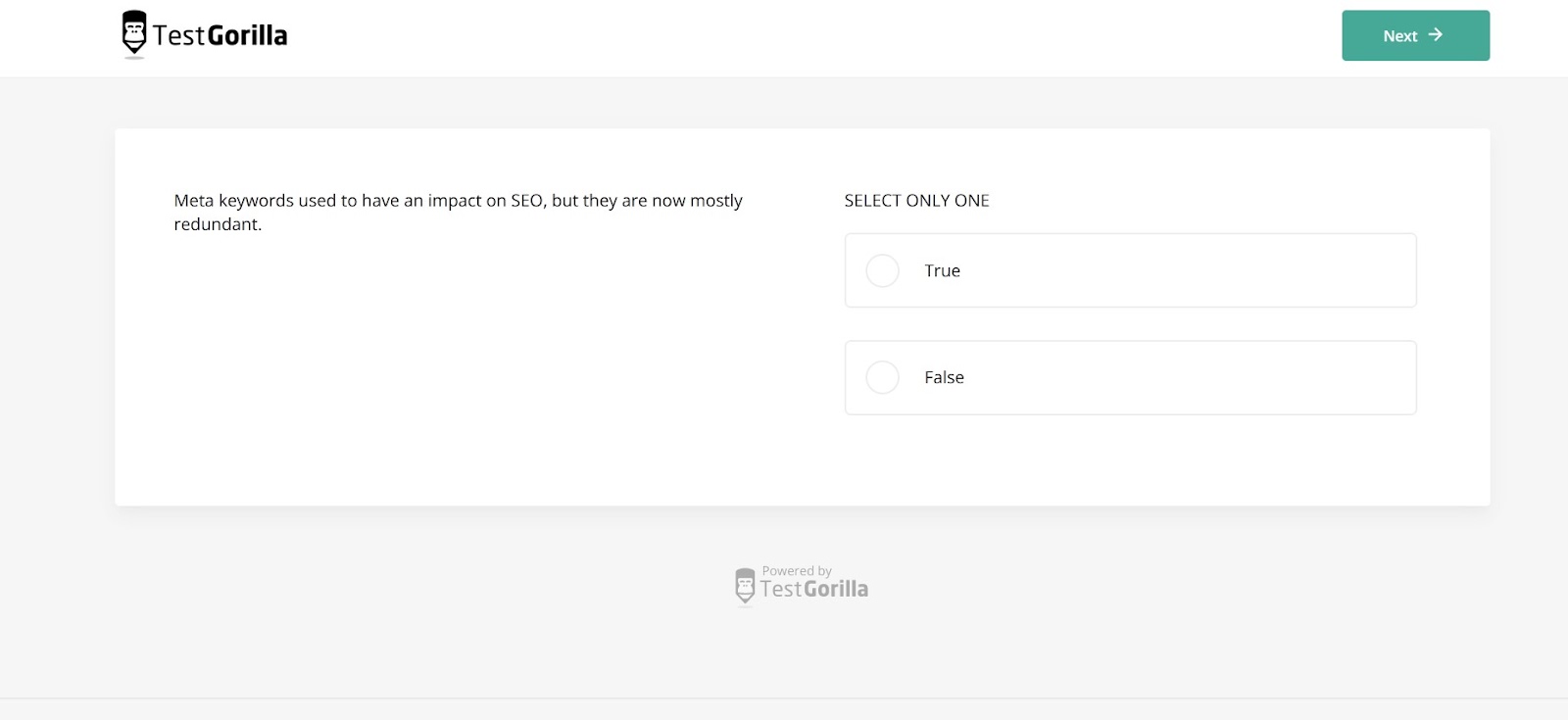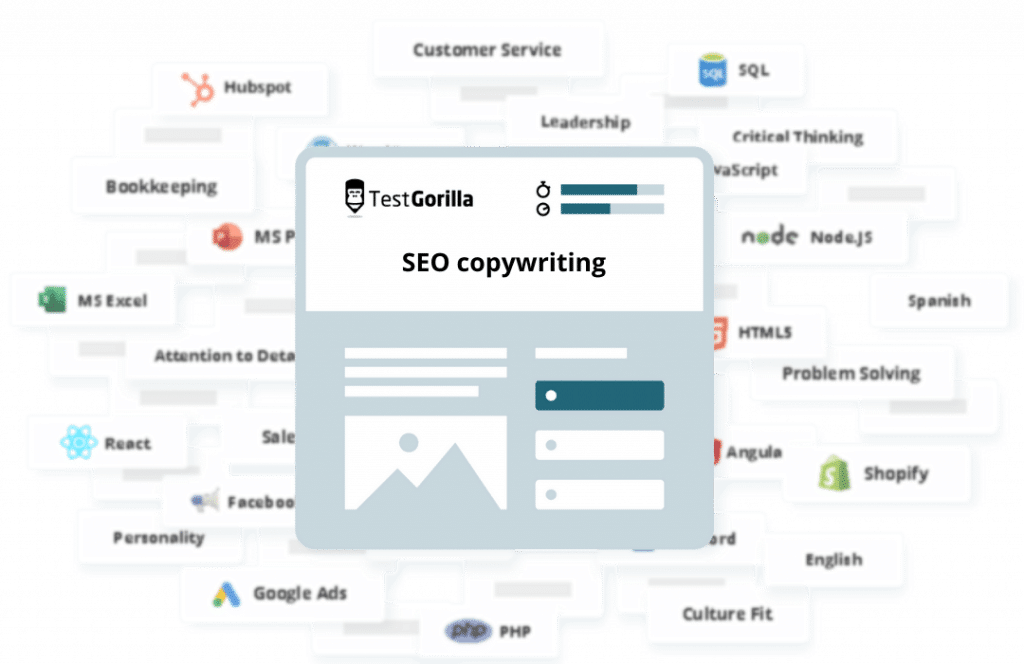Content is king, as the saying goes. However, if you don’t have copywriters with the right skills, your organization can end up performing poorly compared to your competitors. Simply put, copywriters fuel the engine of your content machine, and hiring a bad one is like adding diesel to a petrol engine – disastrous and expensive to fix.
If you’re not a copywriter yourself, then their role may seem fairly easy. It’s just writing some words on a page, and throwing in a few keywords, right?
Wrong. Copywriting isn’t a one-size-fits-all role. There are different types of copywriters who specialize in certain areas, such as SEO copywriters, video scriptwriters, or social media copywriters. Each of these content creation roles requires specific skillsets; for instance, a food blog copywriter may not fit well into the role of creating sales emails, and vice versa.
With that in mind, how do you go about finding a great copywriter for your organization?
Fear not, because we’re going to delve into the murky waters of finding the best copywriting talent, and guide you through the process of using copywriting tests to help you make the right hiring decision.
Decide what kind of copywriter you need
Before you create a job posting, you need to define the type of content you need a copywriter for. As mentioned above, content writers come in different flavors, and while some are great across several content types, it’s rare to find one who excels at them all.
Let’s take a look at the main areas of copywriting so you get an idea of exactly what you are looking for in a content writer.
Website copywriting
Did you know that 38% of people will leave your website if they find the content or layout unappealing? Even if your site’s visual design is top-notch, they won’t stick around if the content writing isn’t drawing them in.
That’s why a skilled website copywriter is essential. They will create content that makes your homepages and landing pages engaging, and aim to communicate information to the website visitor that will prompt them to complete a specific action, such as signing up for a free trial.
Product copywriting
This type of writing is focused on the product or service you are selling. A product copywriter will craft your product descriptions, and promotional material, and write copy for product pages.
The product copywriter needs to create content that is clear and concise, and also appeals to customers or solves their problems. A skilled writer won’t just talk about the features of the product, but how it can benefit the customer.
SEO copywriting
Search Engine Optimization (SEO) content writers are essential for helping your website to rank higher in search engines. They craft long-form content that is interesting to readers and brings value to your blog posts, while skillfully weaving in the top keywords that will help the post rank higher in search results. TestGorilla’s SEO Copywriting test is tailor-made to find those who excel at this kind of writing.
The days of haphazard keyword stuffing in order to rank are gone, thanks to new algorithms developed for the search engines. It’s harder than ever to reach the high-ranking spots, but it makes a huge difference. The top spot in a Google search gets around 31% of all the clicks, while those banished to the second page get a mere 0.78% of them.
Social media copywriting
Some people seem to think they’d be great at social media copywriting just because they are always commenting on Facebook posts or Tweets. They need to think again because social media copywriting is a highly skilled role that requires knowledge of all the social platforms and the best strategies to create copy for each one.
Social media copywriters will create consistent, targeted copy for your brand that engages audiences, builds trust, and encourages them to take action. They will also look to constantly improve and adjust the content using feedback from your company’s followers.
Brand copywriting
This type of copywriting is also known as creative copywriting. The goal is to create positive thoughts and feelings that people associate with your brand through word choice.
When you hear or see “Because I’m worth it” in an advert, do you immediately associate it with L’Oreal? Or “I’m lovin’ it” with McDonald’s? Brand copywriters are skilled at creating those memorable taglines and cementing your brand’s identity in the minds of consumers.
Public relations copywriting
This is an area that covers content such as press releases and statements. The public relations copywriter aims to make your brand look good in the public’s eyes. They write about newsworthy items connected to your organization, like your sustainability initiatives and any work you are doing to help the local community.
They also help to spread the word about any new product releases or updates through the press and can help to limit or repair damage to your brand’s reputation if the unthinkable happens.
Technical copywriting
This is often confused with technical writing, but it’s different. Technical copywriters create marketing materials for technical industries such as IT, engineering, and manufacturing. These include case studies, brochures, website copy, and product guides. A good technical copywriter knows everything about the product or service they are writing about.
Technical writers, on the other hand, are responsible for writing user manuals for products, online help, and FAQs, and they also need to have an in-depth knowledge of the product or service. Their role is to help customers by providing information and answers, while the technical copywriter needs to persuade readers to try or buy the product.
Essential copywriting skills
Hopefully, you now have a clearer idea of the type of copywriter you want to hire. This will differ according to the size and needs of your organization, but one thing remains the same – they all need to possess copywriting skills.
We’re going to take a look at the key skills that help to make a great copywriter. Some are technical skills and some are soft skills, but all are essential.
Creativity
This soft skill is one of the most important for a creative (the clue is in the name, after all). It’s a quality that only comes from within, and while Albert Einstein thought creativity was contagious and should be passed on, it can’t be taught.
Creativity for a copywriter is taking a subject that’s been addressed in writing thousands of times and finding something new to say about it. It’s using words to paint pictures in the minds of readers, inspiring them or subtly encouraging them to click that link or sign up for a free trial.
Communication
Writers need to be able to communicate well, and not just with the written word. Verbal communication is important as copywriters need to talk with clients and team members as well as write.
Good communication skills are essential in all roles, and although you’d expect copywriters to be great at it, not everyone is skilled at talking with others face to face or through Zoom meetings.
Writing skills
This should go without saying, but a writer must have the technical ability to write. Copywriters need a good grasp of grammar, as well as the ability to put their ideas across clearly in a way that’s tailored to your audience.
It’s also important for writers to be able to follow your style guide and briefs so that their work is consistent with your brand’s tone of voice.
Technical skills
Copywriters will be required to use a range of technology in their work. Familiarity with Google Docs or Microsoft Word is just the tip of the iceberg. You may use WordPress to publish your blogs, and if so, you need a writer who already has a working knowledge of the platform unless you wish to train them.
Other apps copywriters may need to use include Grammarly and Copyscape, as well as SEO programs like Semrush or Ahrefs. You may also want them to use task management systems such as Trello or Asana. If your team communicates through Slack or a similar app, they need the ability to use them effectively.
Your writers may need to add graphics, screenshots, and images to your blogs, and if so they will require the skills to organize, resize and format images in some form of an image editing app.
Research
Not everyone realizes that a lot of a copywriter’s time is spent doing research, and it’s crucial that your writer has strong research skills. Those who create long-form content such as blogs may need to research keywords for SEO, as well as the topic itself. Writers will often research competitor’s blogs to see what angle they are taking on the same subject and write their posts accordingly.
Even short-form copywriters need to research when they are creating new advertising and marketing content. Research skills enable a writer to create an outline for their piece and it gives them information and inspiration to create with.
Problem-solving
Nearly every job requires some level of problem-solving skills, and the role of a copywriter is no exception. A writer for an advertising firm may need to use their problem-solving ability to provide effective copywriting while staying on deadline and within a budget.
An SEO copywriter will use SEO software and their knowledge to decide which keywords will work best, and also where to place them naturally within the text and titles so that the article will rank well in search engines.
Time management
Most copywriters work to deadlines, so they should be able to plan and manage their time effectively. Did you know that on average, people get interrupted 60 times a day while at work? Those little interruptions can add up to around half the working day lost, so a writer needs to be a time management master.
This is especially true if your team works remotely. Your copywriter needs the focus and discipline to get the job done while avoiding the siren call of Netflix or social media.
Interpersonal skills
The ability to get along with others and work within a team is key for all staff, not just copywriters. This soft skill builds cohesion and trust within your team and makes for a pleasant working environment. Your copywriter may also need to liaise directly with clients, so they need to be able to put them at ease and accommodate their wishes.
A copywriter should also be able to take feedback well, especially as they may need to make changes to their work before it’s put on public view.
The best insights on HR and recruitment, delivered to your inbox.
Biweekly updates. No spam. Unsubscribe any time.
Copywriting tests: An effective way to start the hiring process
That’s quite a laundry list of skills a copywriter needs – so where do you start when trying to hire a great writer?
While some skills like creativity can’t be measured, you may be pleased to know that a writer’s technical ability can be measured with a copywriting test, (such as TestGorilla’s SEO Copywriting test) that evaluates the key skills necessary to do the job well.
Although SEO copywriting is a specialized type of writing, many copywriters will have a basic knowledge of SEO best practices. The TestGorilla SEO Copywriting test is a way to ensure candidates have the required skills to use keywords and optimize content before going to the interview stage. The test includes:
Keywords and search behaviors
Onpage SEO
Offsite SEO
Website content optimization
As you can see from the sample questions below from the Copywriting test, only someone with SEO knowledge can answer the questions correctly:
The question from the Copywriting test above tests the candidate’s knowledge of search queries, and the one below asks applicants to choose the right answer to the meta keyword question:
All of TestGorilla’s tests and assessments are cheat-proof, so you get peace of mind that only those with genuine knowledge will score highly on the Copywriting test.
How our Copywriting test can streamline your hiring process
Skills-based hiring is on the rise, and we think it’s the future of recruitment in the modern world. You are pre-screening candidates to prove they have the hard skills to do the job well, and once you have the test results you can decide immediately which applicants you want to take on to the interview stage – and all without skimming through a single CV.
Can you imagine how much time that saves? Every job posting attracts hundreds of CVs, and someone has to go through them to make an interview list. Many applicants will lie or stretch the truth about skills on their resumes, so how do you know a candidate has SEO knowledge without testing it?
Skills-based testing with our SEO Copywriting test takes all of this uncertainty away. It’s also fairer to the applicants because everyone starts from a level playing field and the risk of unconscious hiring bias is reduced.
How TestGorilla can help you hire the best with pre-employment assessments
For best results, the SEO copywriting test (like all our tests), is not designed to be taken as a stand-alone test, but as part of a longer assessment that should be taken at the start of the hiring process. You can add up to five specific tests to an assessment, and the candidate takes the tests in one sitting.
If you want candidates to take the SEO Copywriting test, you could choose to include hard or soft skills tests relevant to the job role from the TestGorilla test library, as well as personality tests to give insight into how an individual deals with the working world according to their personality traits.
There are a variety of tests that could be added to the SEO Copywriting test to make an assessment of up to five tests, and these are just a few examples:
The advantage of creating an assessment instead of just using the SEO Copywriting test is that you can test several different skills at once. This gives you a much broader view of the candidate, and you will get an idea of how well they will fit into your organization and align with its values.
Copywriting is a highly skilled job, and not something that should be left to chance. By creating a broader skills assessment based around our Copywriting test, you ensure that the top-scoring candidates have the technical SEO writing skills for the job, and also possess other role-related or soft skills to help them succeed.
Copywriting skills tests such as TestGorilla’s SEO Copywriting test are a valuable tool when it comes to finding the best copywriter for your brand. Take a look at TestGorilla’s pricing page, sign up for free, or book a free 30-minute live demo with our sales team today today and discover how you can take the stress out of finding your next can-do copywriter.
You've scrolled this far
Why not try TestGorilla for free, and see what happens when you put skills first.


